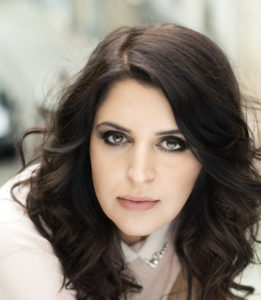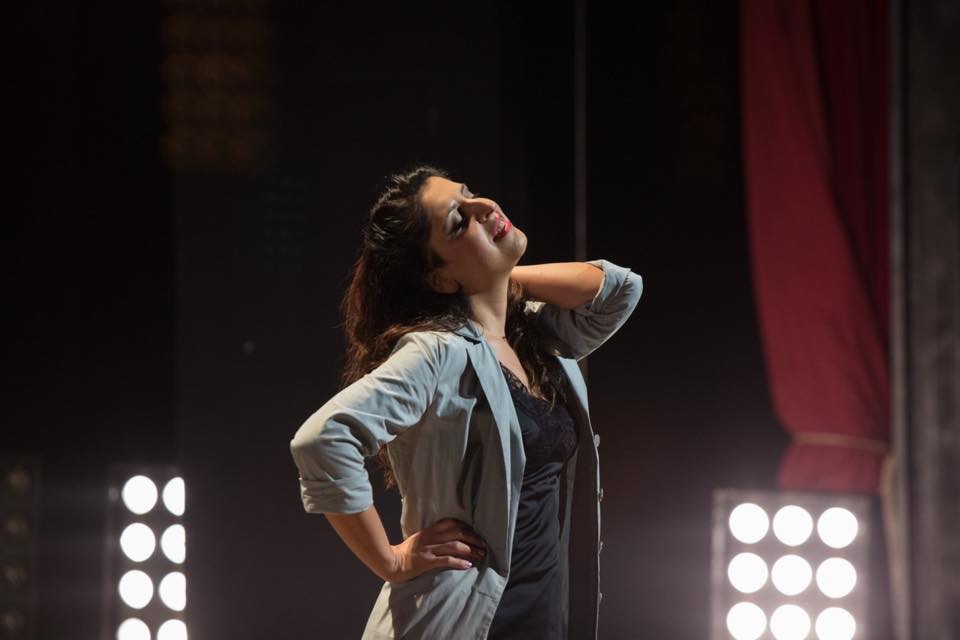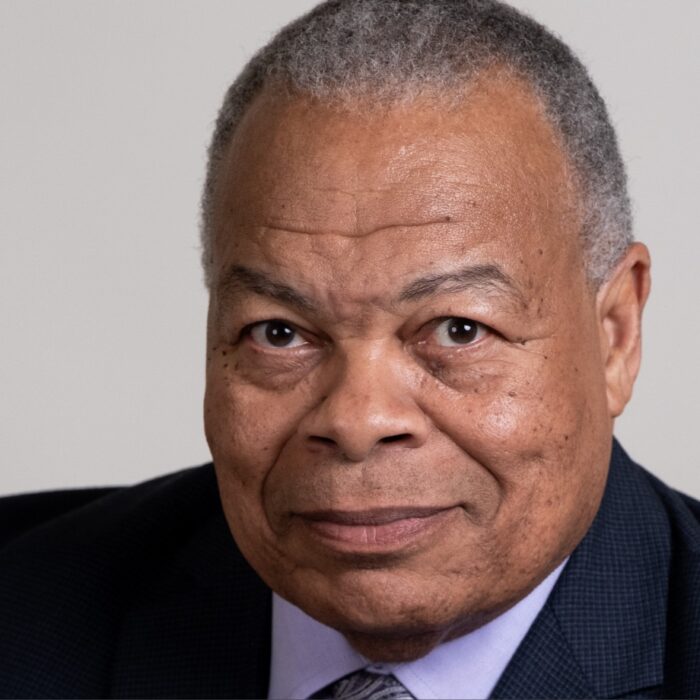
Q & A: Varduhi Abrahamyan On ‘Carmen’ & Her Upcoming Metropolitan Opera Debut
By Francisco Salazar“Allure” and “brightness” have been some of the words used to describe mezzo-soprano Varduhi Abrahamyan.
The Franco-Armenian mezzo is one of today’s rising stars, having performed at many of the leading theaters in the world including the Gran Teatre del Liceu, Théâtre des Champs Elysées, Opéra de Marseille, and Opernhaus Zürich. She is recognized for her Bel Canto interpretations in works by Donizetti and Rossini as well as her approach to the iconic role of Carmen.
This season, the mezzo returns to the iconic role in two productions including one at the Metropolitan Opera, where she is making her house debut.
OperaWire spoke to Abrahamyan about the role, its challenges, and fulfilling her dream of performing at the Metropolitan Opera.
OperaWire: You’ll be singing Carmen this season. What are some constants that remain in your interpretation as you go from one production to the next?
Varduhi Abrahamyan: I always considered it a dream to be able to interpret Carmen and that dream came true six years ago at the Opéra de Toulon in France.
Since then it is a role that has been very close to me and I have had the fortune of singing it at the Opéra National de París, Teatro Massimo di Palermo, Bolshoi Theatre in Moscow, The Atlanta Opera, Hong Kong Opera, Opernhaus Zurich, Ópera de Oviedo, Teatro Regio di Torino, and Bayerische Staatsoper in Munich. So I feel very fortunate. It’s an atemporal work that speaks of human passions and is very contemporary like it was when it premiered.
It narrates the story of two opposite people, Carmen and Don José, who have a very different vision of love. The role of Carmen is marvelous in all points of view. She is an impressive woman and a very complex character who has her ideals of liberty and she shows it from the beginning with her aria the Habanera. She lives on the margins of the rules and she is not willing to give her up ideals for anyone. She will even sacrifice herself and die for them.
OW: These productions vary from modern to traditional. Do you have a preference in the type of production you like to sing? What do you think are the differences and do you think one gives you more liberties?
VA: For me, no matter if it is a traditional or modern production, the most important thing is that Carmen’s essence and emotions are not betrayed. The libretto must be respected as well as the music. But the character is universal and that is why it can be adapted to any time, environment, or culture without a problem. The most important thing is that the production focuses on an intelligent theatrical experience.
I don’t have a preference for whether it is modern or classic. I feel very comfortable in both types of productions and because of the way I sing the character, I like it to vary. But as I noted the essence of Carmen emerges from the first note of Bizet’s work.
OW: Having sung Carmen for several years, how has your interpretation changed?
VA: My Carmen has had an evolution over the years. The first productions allowed me to get familiar with the character vocally and scenically. I was able to get to know the character and understand her and as a result, make it my own. Over the years I have found new dramatic textures and today I enjoy interpreting her much more.
Our instrument, the voice, is so dynamic and that is why when I look at the score, I focus on certain passages. That is what I am passionate about. That is what makes a difference from one production to the other. I am a very curious person and I like to investigate, try, and discover new details in a score. Bizet demonstrated he was a genius creating universal music that captures you as a listener regardless of what culture you come from.
OW: What are the biggest challenges of playing this iconic role?
VA: I think one of the biggest challenges in interpreting this character is not to get trapped in the stereotypical cliches. If you only keep the superficial, femme fatal interpretation, you run the risk of making her irrelevant and vulgar. Carmen is more than that. She has so many facets!
Additionally, she is such a popular character that has been interpreted so many times. Therefore you have to offer something fresh. With Carmen and with all the characters I interpret, I like to research and go to the sources. With hard work and dedication, you realize that the possibilities to enrich your interpretation are infinite.
Under the folklore, topic, and joyful music, “Carmen” is without a doubt one of the greatest dramatic works of the 19th century. It’s much more than habaneras, seguidillas, and songs. Bizet’s dramatic sensibilities are able to capture every emotion, every character detail, and puts it in the music, which is all about emotion.
OW: What makes her so modern and so relatable to today’s society?
Carmen is a complex woman and she is so modern for her time. Her character has so many faces; she is instinctive and she is completely emotionally involved at every moment. If she is in love, she is devoted to it. If she is angry, she shows it 360 degrees.
She is a free spirit, a modern woman, she is the owner of her life but unfortunately not her destiny. She isn’t looking for real love because she loves her freedom and loves the idea of creating her future. She is contemporary, passionate, and Mediterranean, with an unwavering force that does not give in to prejudice nor pressures. Being able to interpret her is a gift!
OW: What are your favorite moments in the work? Do you find it changes from production to production?
It’s so difficult to choose a favorite moment. There are so many. One of my favorite sections is the Habanera, which immediately identifies the themes of the opera and its protagonist. It expresses to perfection the idea of free love, without being tied up, unpredictability, and a woman who can not be governed by anyone and one that is guided by these ideas until the very end.
Another one of my favorite moments is the Act four duet. It is very dramatic and extremely difficult for Carmen and Don José. It’s impressive and I love to experiment with the intensity and everything that happens on stage.
OW: How does Carmen’s tessitura differ from other repertoire you sing? How does it fit into your voice?
The tessitura is ample and demanding and requires great stamina. You are not only singing but also dancing and going through a lot of movement. Vocally it is one of the most complete roles and requires a different type of singing depending on the act. She is sensual and seductive in Act one and two but then she is strong and dramatic in Act three and four. In many ways, it requires a lot of sensuality as well as whispers and sensibility.
In terms of the differences with other roles I sing, I don’t do anything different. The most important thing is to know how to adapt to other styles. Technically it’s the same thing no matter if I sing a Bel Canto role or Carmen.

VA: You will make your Met debut in “Carmen.” How does it feel to make your debut at this house in this iconic role?
VA: It is a dream come true! It’s always an enormous responsibility but it comes at a special moment in my career and I’m so happy that it comes at this point.
I am also grateful that it came with this iconic character. I can’t wait for rehearsals to begin to connect with the American public.
OW: You will sing two roles this season at the Met and one in HD. How does it feel to get two productions in one season at one of the most iconic theaters in the world? And what excites you about doing an HD production?
VA: Yes! Not only will I sing Carmen but I will also get to do Fenena in “Nabucco.” I am very happy to be able to do these two roles at this house. It is also wonderful to have the technology available to bring live performances to movie theaters to audiences around the world. “Nabucco” was selected for HD and I think it is wonderful to bring art to so many more people.


